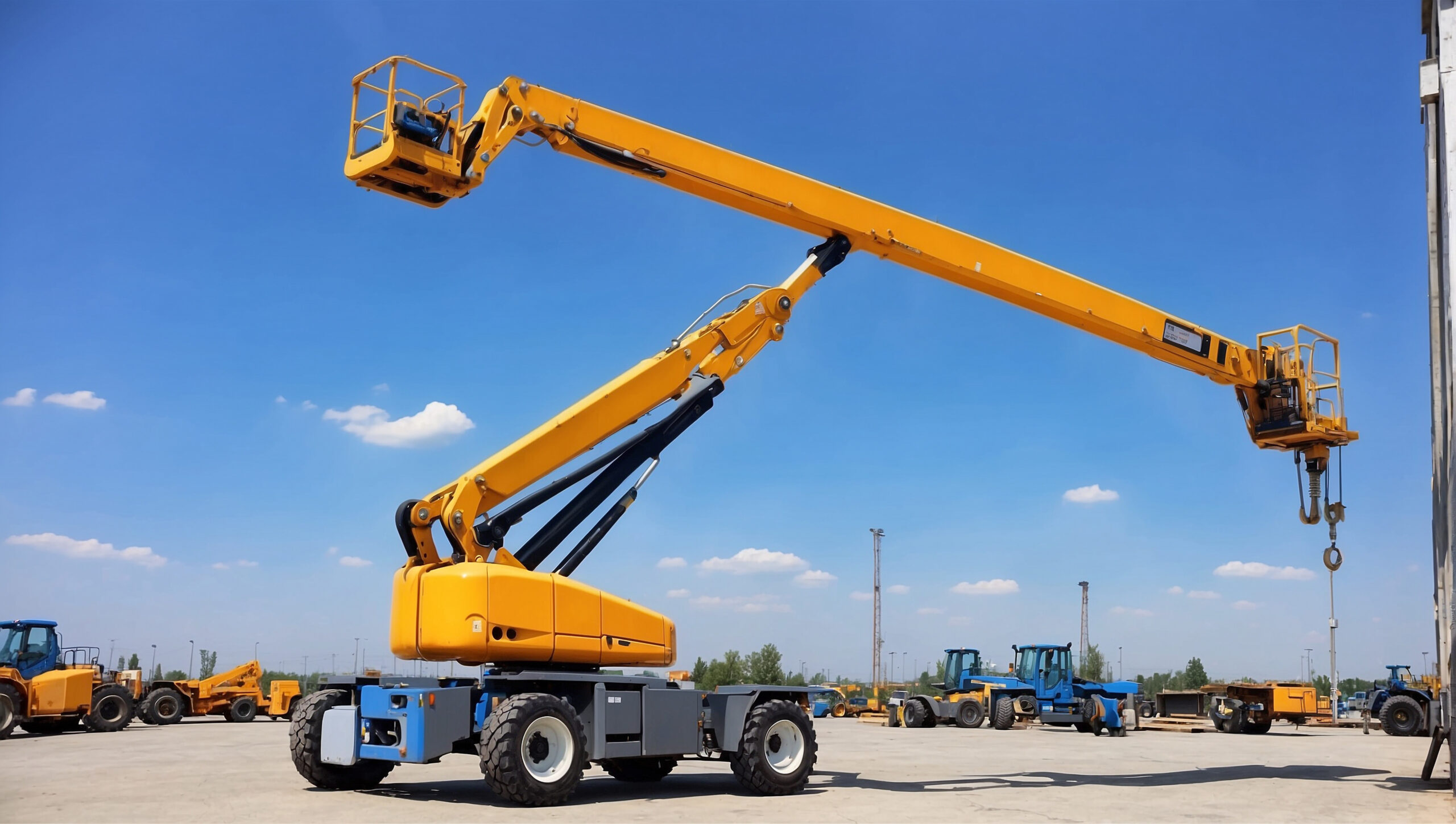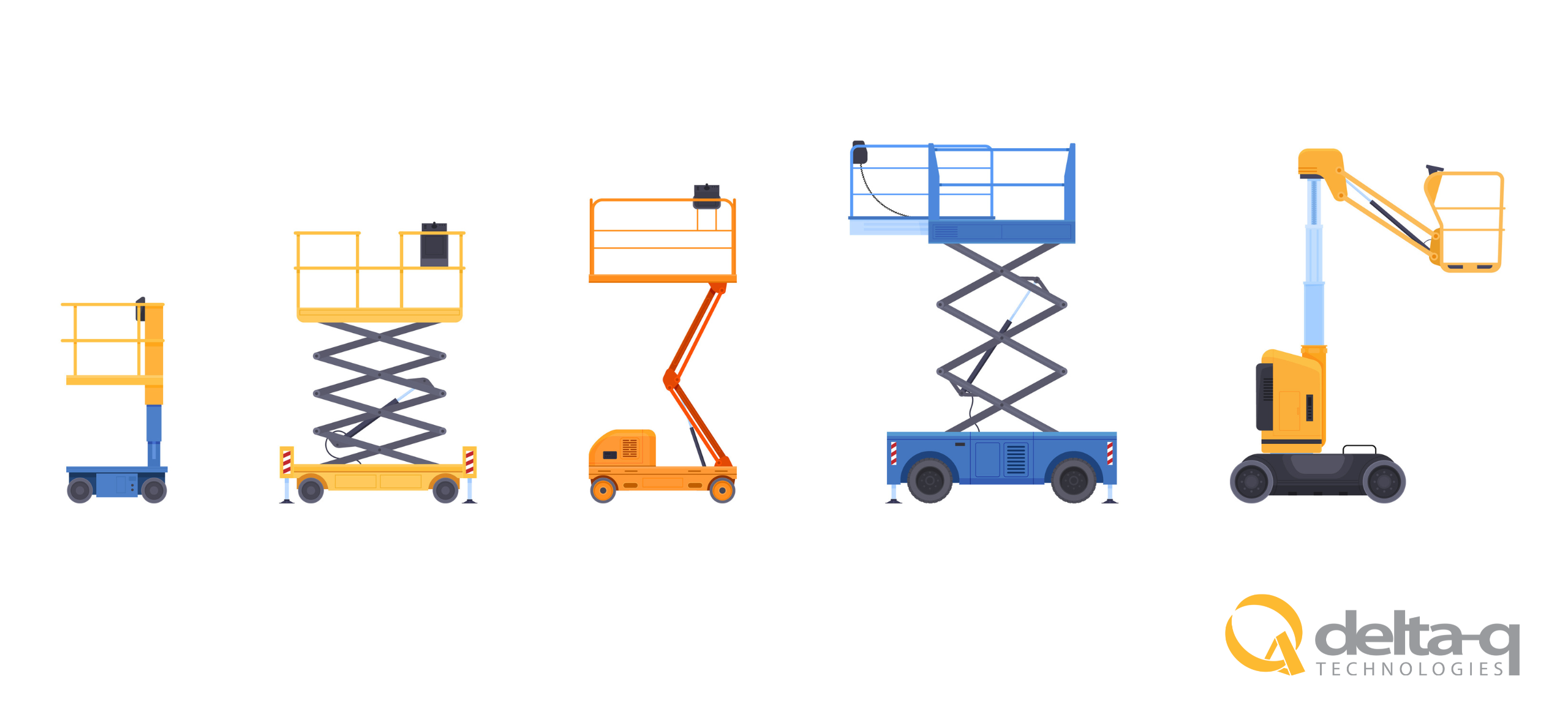The Importance of Data for Smart Warehouses
The innovations emerging today in warehouses and materials handling will soon be the industry standard. From telematics to inventory and logistics, what do they all have in common?
They utilize data—and significant amounts of it.
The extent to which this data drives decision-making will determine new operational efficiencies and—as a result—new market leaders. To capture and to leverage this data, competitive firms must increase their technological adoption and create more “smart warehouses.”
Big Data for Warehouses and Materials Handling
Informed decision-making is reliant on data. Given the complexities of warehousing and materials handling, enormous amounts of data are necessary to provide management with operational insight.
Big data analytics aggregates all of this information, applying artificial intelligence and sophisticated computational capabilities to more quickly identify trends and provide better predictions.
However, utilizing all of this data requires dedicated personnel and technology.
Data from Warehouse Management Systems
Warehouse management systems (WMS) are essential software platforms for analyzing data and optimizing logistics and supply chains. They provide extensive visibility into individual facilities and across entire multi-warehouse operations.
Aside from pursuing overall efficiencies, warehouse and materials handling operations that manage multiple facilities need to compare individual locations against each other. This enables them to determine how to achieve optimal performance across and within each.
A logistics and supply chain company case study demonstrated that a substantial challenge involved meeting consistent customer expectations despite goods flowing through multiple warehouses. Each facility’s performance proved different. To optimize operations across these different locations, the company built a custom reporting tool, which categorized data collected by their WMS and created new reports:[1]
- Order and business profiles – Used to predict resources allocations that best support individual warehouse facilities and target industry trends that will foster growth
- Hardware and software configurations – Used to make IT planning and system integration decisions that will further support their data analytics
- Labor productivity – Used to plan and adjust labor management on facility and administrative levels (e.g., segmented facility zones, seasonal labor hires, training needs)
- Warehouse space optimization – Used to track and optimize how warehouse spaces are being used at any given time and forecast how they should be
- Devices and equipment scalability – Used to monitor all devices and equipment (e.g., radio frequency identification, lift trucks and their telematics)
- Inventory data – Used to track inventory throughout the supply chain, which determines stock quantities and prevents too much capital from being tied up in inventory
- Billing data – Used to assess a facility’s financial expenses across:
- Transactional data (e.g., receiving and putaway, picking and packing)
- Variable charges
- Fixed charges
The case study concluded with the company achieving process efficiency gains of 14-18% via the insights gained from reports based on these data categories.[2]
More Data Engineers and Analytics Capabilities Needed
It’s crucial to note that while WMS capabilities grow more sophisticated each year, the case study above relied on a custom reporting tool built by the company’s own IT personnel.
These analytical capabilities and resultant efficiency gains were only possible because the company already staffed the people necessary to perform the task.
To stand up and operate smart facilities relying on big data analytics, warehousing and materials handling companies will need to expand (or build) their data engineering teams. Analyzing massive data sets requires specific skills and knowledge that not every IT employee can provide.
Telematics and Further Data Proliferation
Coinciding with big data analytics, warehouse and materials handling equipment’s increasing technological sophistication creates new data sources. Data creation has proliferated exponentially in recent years with telematics (i.e., fleet monitoring and onboard diagnostics).
These sources must be integrated with WMS data for greater predictive modeling and insight, which again requires even more computational capabilities and data engineering personnel.
Smart warehouses also need to support robust Wi-Fi and cloud infrastructure so that the data can be communicated from individual devices and equipment to management systems.
The Impact of Telematics
Telematic data allows warehousing and materials handling operators to perform predictive maintenance and better monitor their essential equipment.
For example, onboard diagnostics sensors enable superior fleet management for lift trucks. Operators and fleet managers can now track:
- Essential performance (e.g., forklift controls, brakes)
- Impacts
- Usage times
- Battery health and charging data
As facilities increasingly utilize autonomous mobile robots and autonomous guided vehicles, monitoring telematics and operations data will become increasingly crucial.
With greater insight, predictive maintenance can be performed to prevent failures while equipment is in use. This not only reduces operational downtime experienced by specific equipment and devices, but prevents failures from occurring on the warehouse floor in live environments and heavy traffic.
Lithium Batteries and Chargers
One area that has experienced concurrent innovations to great effect is batteries and chargers.
As more original equipment manufacturers (OEMs) have begun utilizing lithium batteries, performance and maintenance improved (e.g., no water level checking, battery acid safety concerns).
In addition, lithium batteries’ improved output and density have allowed more equipment—such as lift trucks—to be electrified than before. Lithium power also results in smaller unit sizes, which has enabled OEMs to provide additional functionality, including onboard chargers.
Sophisticated smart chargers make it substantially easier to monitor lithium battery health, as well. The charger records data that can be incorporated with broader data analysis for predictive fleet management and resource planning.
Additional benefits from improved battery technology include longer equipment operating times and less dedicated charging infrastructure. With lead-acid batteries, their limitations and charging frequency required most warehouses to provided dedicated management space. Facilities can now reclaim much of this space for more inventory or other purposes—which their big data analytics can inform.
Smart Warehouses Lead to Greater Efficiencies through Data
One of the most significant takeaways from the COVID pandemic was that our supply chains have become so interconnected in pursuit of efficiency that any issues quickly compound. Seemingly small setbacks and delays—such as battery and charger failures—lead to massive ramifications throughout the entire system.
Big data analytics, telematics, and other predictive measures must be leveraged to mitigate the impact of individual complications.
Smart warehouses are more able to prevent these issues through insight derived from predictive data analysis. However, to perform the big data analytics necessary for significant efficiency gains, the “smart” approach must be applied to everything—from throughput logistics to batteries and chargers.
Want to learn more?
Visit our landing page for more information on the application and technology trends in mobile robotics.
About Delta-Q Technologies
Delta-Q Technologies is charging the future and driving the world’s transition into electric energy! We collaboratively design, test, and manufacture robust battery chargers, that improve the performance of our customer’s electric drive vehicles and industrial machines. As the supplier of choice for Tier 1 OEMs, they use their values, perseverance, and engineering expertise to guide their customers through the electrification process for a sustainable world.
They are part of the Zapi Group of companies and headquartered in Vancouver, Canada. Delta-Q’s team and distribution span five continents to service industries such as electric golf cars, lift trucks, aerial work platforms, e-mobility, floor care machines, utility/recreational vehicles, and new markets, like outdoor power equipment, marine and construction equipment. For more information, please visit www.delta-q.com or follow company updates on Twitter and LinkedIn.
Sources:
International Journal of Computer Applications. Data Analytics in Warehouse Management Systems (WMS) Implementations. https://www.researchgate.net/publication/332375879_Data_Analytics_in_Warehouse_Management_Systems_WMS_Implementations
[1] International Journal of Computer Applications. Data Analytics in Warehouse Management Systems (WMS) Implementations. https://www.researchgate.net/publication/332375879_Data_Analytics_in_Warehouse_Management_Systems_WMS_Implementations
[2] International Journal of Computer Applications. Data Analytics in Warehouse Management Systems (WMS) Implementations. https://www.researchgate.net/publication/332375879_Data_Analytics_in_Warehouse_Management_Systems_WMS_Implementations





